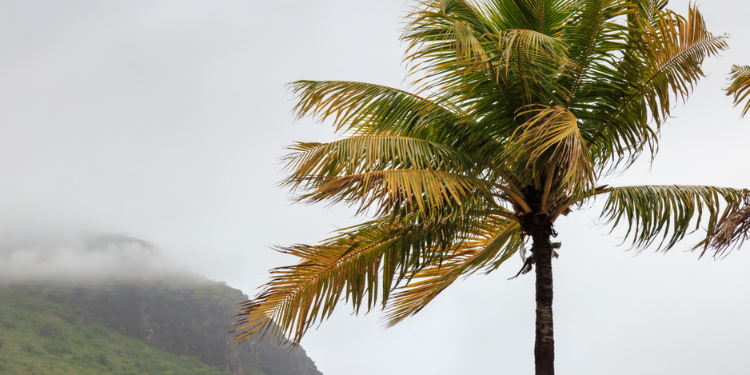
Cyclones, formidable tropical storms originating from warm seas, have been a recurring feature in the local weather patterns for many years. While their arrival is dreaded during the cyclone season, typically spanning from December to March, the lingering question is whether we should truly fear these natural phenomena.
Annual occurrences
Mauritius consistently finds itself in the potential path of cyclones each year. Since 1892, the country's meteorological services have documented 44 "historic" cyclones, distinguished by the significant damage they inflicted. Among these, Gervaise, which traversed the island from February 5 to 7, 1975, remains the most intense, with gusts reaching up to 280 km/h.
Other infamous storms, like Carol in 1892, Hollanda in 1964, and more recently, Belal, have left lasting memories in the minds of Mauritians. Cyclones can indeed leave enduring marks, ranging from infrastructure destruction to prolonged power outages. The impact of Hollanda, which rendered around 1,500 residents homeless and severely damaged the electricity grid, resulted in a 10% decrease in Mauritius' GDP that year.
Increasing cyclone intensity?
Since the passage of Gamède in February 2007, Mauritius has not experienced a major cyclone. However, this does not diminish the country's vulnerability; climate change introduces an element of uncertainty into this well-established meteorological dynamic. The Meteorological Services report for the summer of 2023-2024 predicted an elevated risk of extreme weather events.
Currently, the scientific consensus suggests that global warming could amplify the intensity of tropical cyclones, potentially making them more potent. Recent climate simulations in the IPCC's sixth report reveal a concerning escalation in cyclone violence due to climate change. With the forecasted average cyclone intensity to rise by 5% and very intense cyclones by 14%, the risks are on the upswing. Cyclonic rainfall is expected to increase by nearly 15% for a global warming of 2°C. Recent observations already indicate this trend, with a rise in cyclonic activity, particularly in the North Atlantic.
Should you be concerned?
For expatriates in Mauritius, it's crucial to note that despite the possibility of tropical cyclones, the country has a well-established risk management system. Meteorological authorities closely monitor weather conditions and issue timely warnings of cyclonic threats. Local infrastructures are designed to withstand extreme conditions, and evacuation procedures are well planned. Expatriates can find reassurance in the fact that local authorities prioritize the safety of the population, and effective measures are in place to minimize risks and ensure protection for all.
Precautionary measures
In the event of a cyclone warning, red flags are raised on various public buildings to signal imminent danger. Warnings are categorized into six phases, ranging from simple preparation to immediate evacuation, depending on the threat level. Pay close attention to bulletins from the Vacoas weather station, and be wary of misinformation on social networks.
As a cyclone approaches, taking preventive measures is essential. Reinforce windows, secure vehicles, stock up on food, and seal homes. Remember to charge electronic devices and have candles on hand, as power cuts are common during storms.
From class 3 onwards, it is crucial to stay at home, closely monitor regular weather forecasts, wait for warnings to be lifted before going out, follow authorities' instructions, and remain vigilant for fallen wires and damaged structures.



















